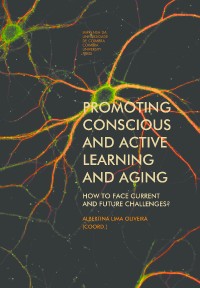Please use this identifier to cite or link to this item:
https://hdl.handle.net/10316.2/32486| DC Field | Value | Language |
|---|---|---|
| dc.contributor.author | Zarifis, George K. | |
| dc.date.accessioned | 2014-07-03T08:40:39Z | |
| dc.date.accessioned | 2020-09-10T11:19:43Z | - |
| dc.date.available | 2014-07-03T08:40:39Z | |
| dc.date.available | 2020-09-10T11:19:43Z | - |
| dc.date.issued | 2013 | - |
| dc.identifier.isbn | 978-989-26-0732-0 (PDF) | |
| dc.identifier.uri | https://hdl.handle.net/10316.2/32486 | - |
| dc.description.abstract | This chapter studies the conditions that define seniors in Europe as disadvantaged. Although the term “disadvantaged” is case-specific (referring to those in a disadvantaged, needy or deprived state or position) it is necessary to approach it within a specific context (such as social, economic, cultural, educational or medical). In general terms it refers to a particular group of people with inadequate learning resources due to limited or restricted access to learning provision, people who are unemployed, education dropouts or non-participants in learning such as migrants, unskilled or low skilled seniors, people with disabilities (mental or physical), those who have taken early retirement and third-age learners (50+). The main argument of the chapter with regard to disadvantaged seniors in Europe is that their drawback is highly related to the inability to access education and learning because they are either not informed or unaware of educational opportunities, or because existing educational opportunities are not appropriate to this particular group of people. Furthermore, seniors may be unable to participate in learning because they do not consider it as important or because they think it is irrelevant to their development. Reflecting on existing theory and relevant research evidence, the chapter concludes that it is of critical importance in addressing these conditions to assess how disadvantaged seniors may be enabled or empowered towards self-directed learning in order to make their way in and actively take part in a productive way of life. | eng |
| dc.language.iso | eng | - |
| dc.publisher | Imprensa da Universidade de Coimbra | por |
| dc.relation.ispartof | http://hdl.handle.net/10316.2/29856 | por |
| dc.rights | open access | - |
| dc.subject | Disadvantage senior | por |
| dc.subject | Identifiers | por |
| dc.subject | Self-efficacy | por |
| dc.subject | Self-directed learning | por |
| dc.title | Who is a disadvantaged senior in europe?: main identifiers for assessing efficacy for self-directed learning of the aged and at-risk | por |
| dc.type | bookPart | por |
| uc.publication.collection | E-book | por |
| uc.publication.firstPage | 87 | - |
| uc.publication.lastPage | 112 | - |
| uc.publication.location | Coimbra | por |
| dc.identifier.doi | 10.14195/978-989-26-0732-0_4 | - |
| uc.publication.digCollection | PB | por |
| uc.publication.orderno | 4 | - |
| uc.publication.area | Ciências Sociais | por |
| uc.publication.bookTitle | Promoting conscious and active learning and aging: how to face current and future challenges? | - |
| uc.publication.manifest | https://dl.uc.pt/json/iiif/10316.2/32486/212678/manifest?manifest=/json/iiif/10316.2/32486/212678/manifest | - |
| uc.publication.thumbnail | https://dl.uc.pt/retrieve/11190855 | - |
| uc.publication.parentItemId | 53190 | - |
| uc.itemId | 70572 | - |
| item.grantfulltext | open | - |
| item.fulltext | With Fulltext | - |
| Appears in Collections: | Promoting conscious and active learning and aging: how to face current and future challenges? | |
Files in This Item:
| File | Description | Size | Format | |
|---|---|---|---|---|
| promoting_artigo4.pdf | 1.31 MB | Adobe PDF |  |
Items in DSpace are protected by copyright, with all rights reserved, unless otherwise indicated.
